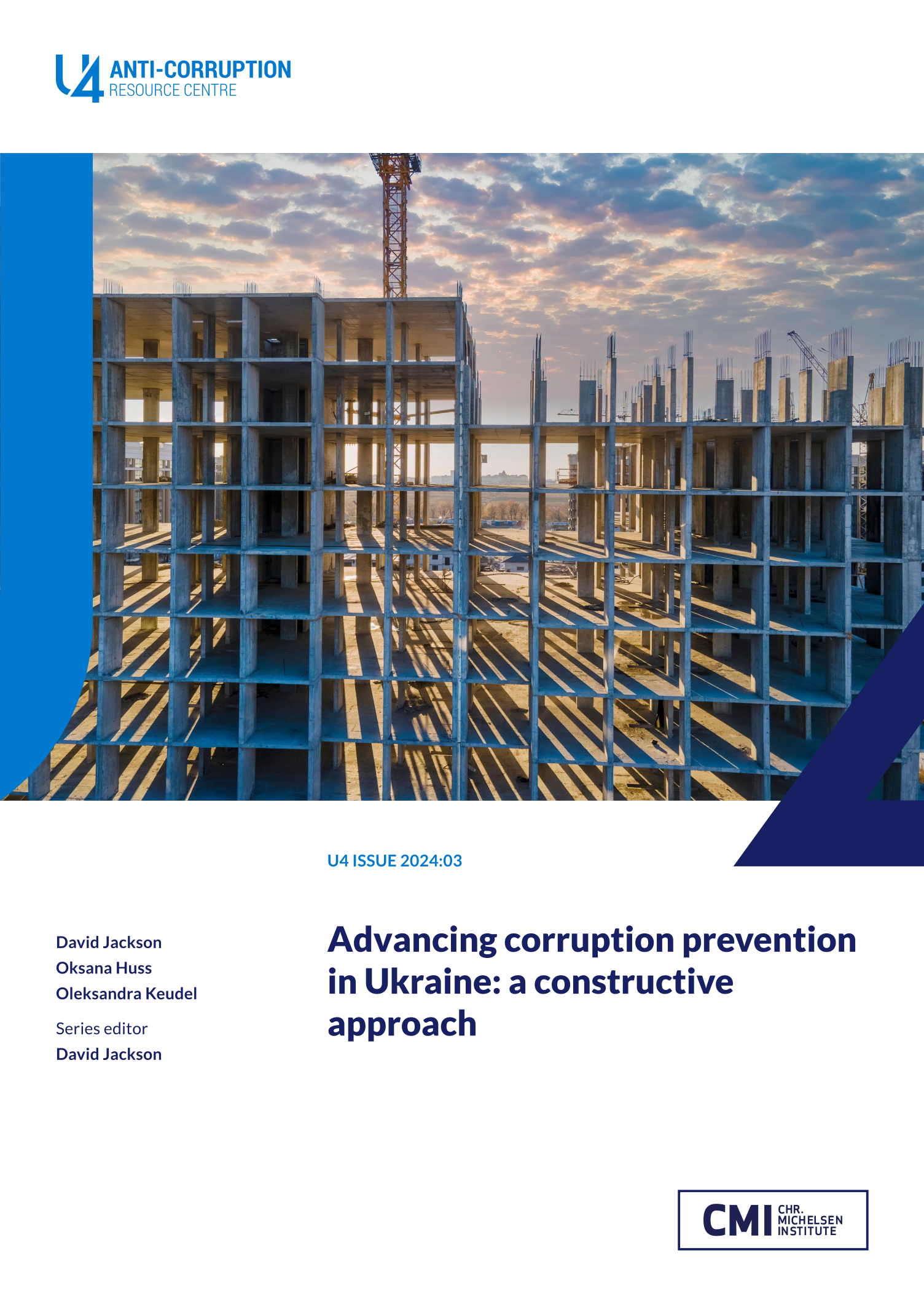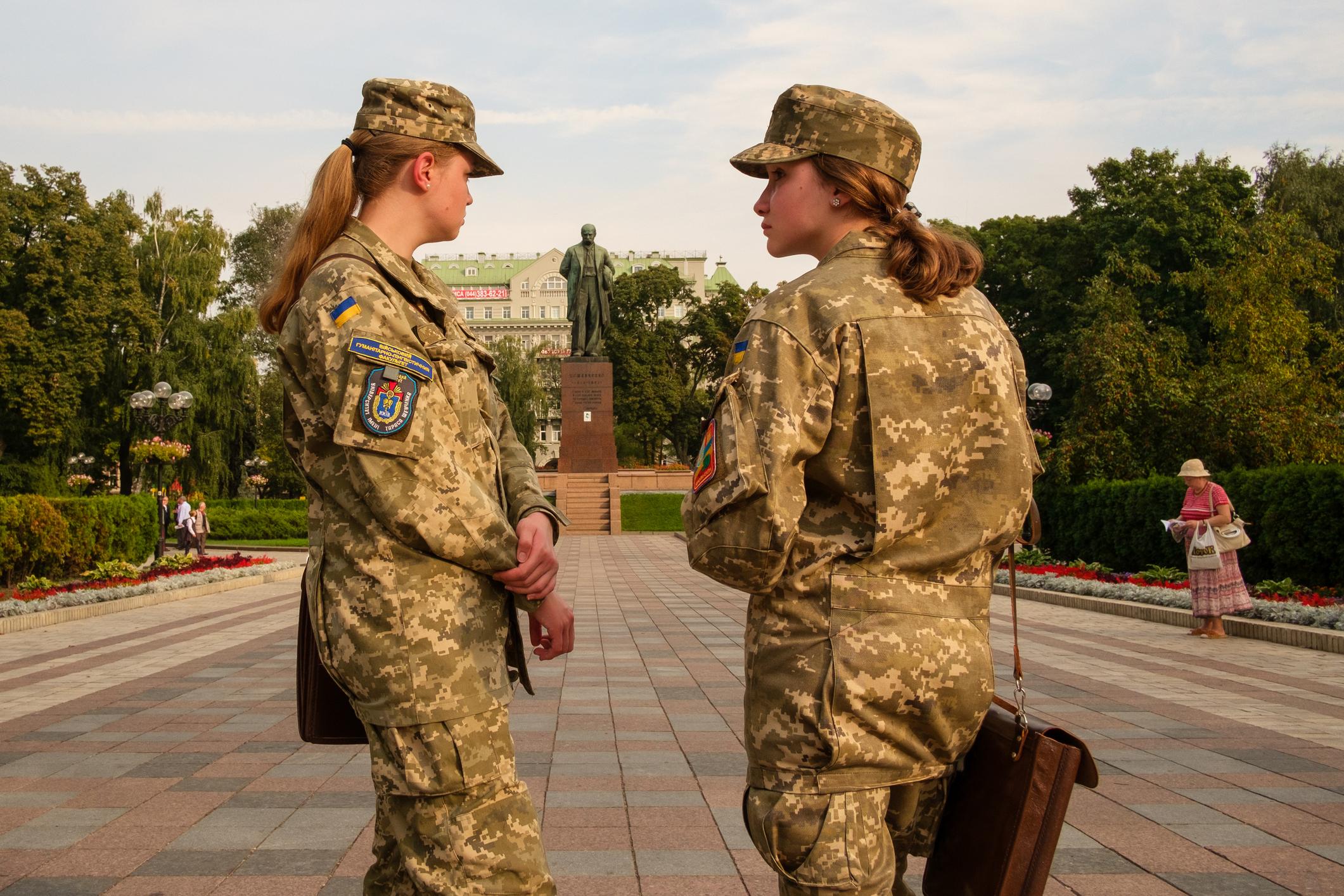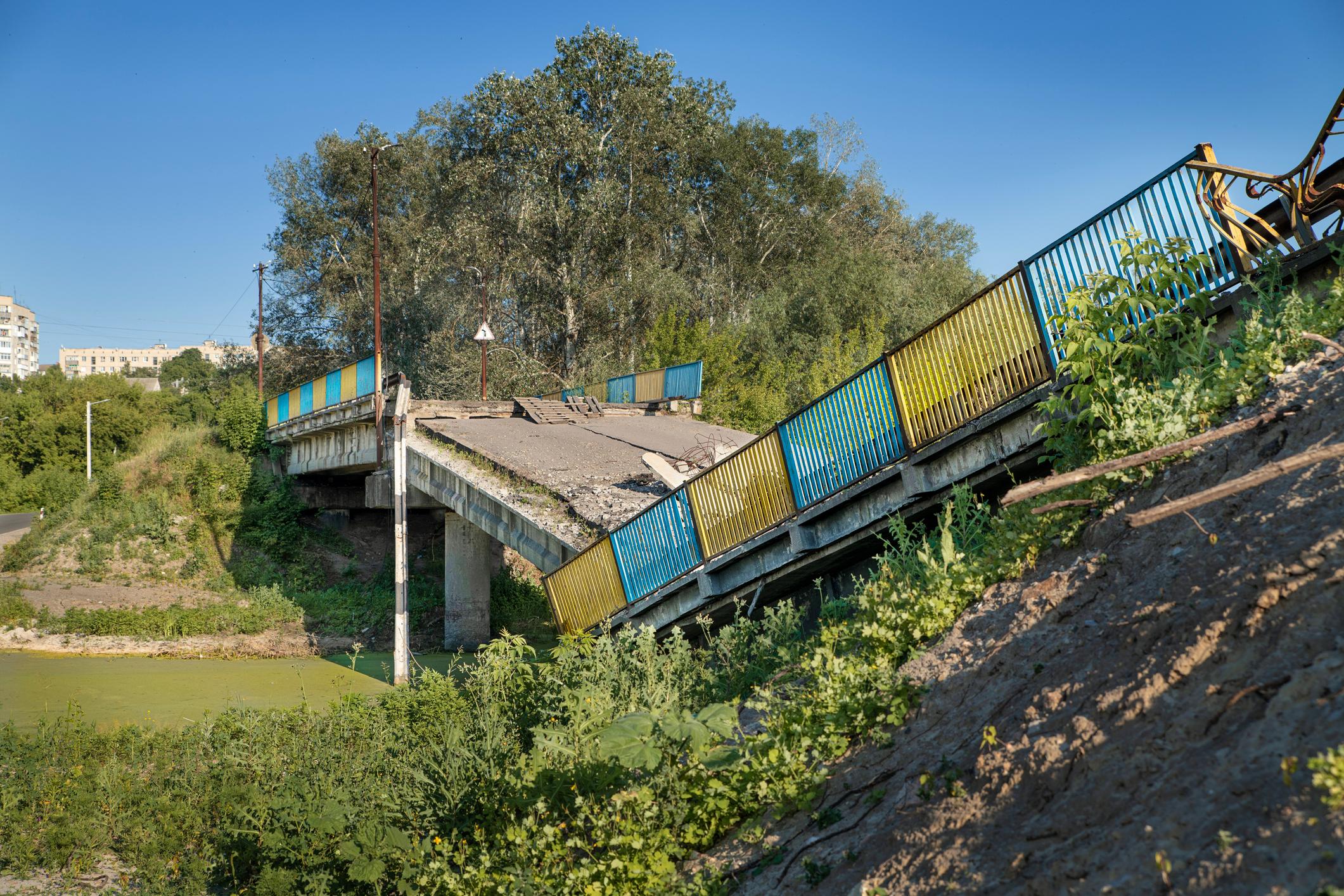Main points
- Anti-corruption in Ukraine is often thought of as having three main policy agendas that should work in synergy: legalistic, enforcement (punitive) and preventive.
- Prevention is an important concept, though it is never clearly defined in anti-corruption. In fact, there are two types of prevention in anti-corruption: deterrent prevention and constructive prevention. Deterrent prevention seeks to disincentivise corrupt behaviour, whereas constructive prevention seeks to incentivise anti-corruption.
- Constructive prevention aims to incentivise anti-corruption by strengthening the social foundations of anti-corruption in a way that deterrent prevention cannot do. It does so by addressing systemic constraints on the willingness of individuals, communities, businesses, public actors, and organisations to actively contribute to an anti-corruption agenda.
- Constructive prevention has been mostly secondary in Ukraine. However, it can help anti-corruption become more sustainable. In particular, analysts have already pointed out that there is a risk that EU accession approaches that emphasise legal compliance and institutional development could result in only partially implemented reforms that do not change the underlying drivers of social and political behaviour.
- We recommend actions that the Government of Ukraine, the international community, the National Agency on Corruption Prevention, local governments, civil society and business can take to improve constructive prevention.



